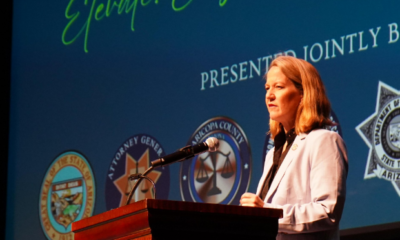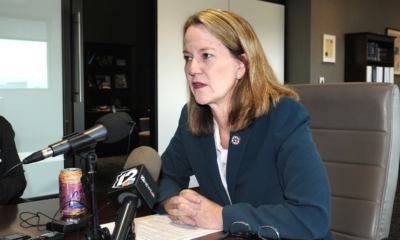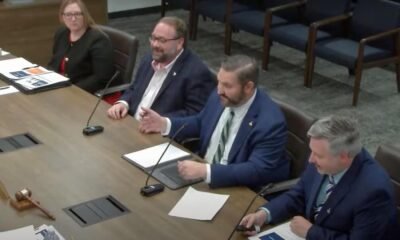arizona
Pima Deputy’s Legal Battle Thwarted as Judge Dismisses Suit Against Sheriff Nanos’ Leave Order

A federal judge ruled on Monday that the Pima County Sheriff’s Department (PCSD) may continue to discipline a deputy over his attire during protest events against Sheriff Chris Nanos earlier this month. However, the judge emphasized the need for PCSD to clearly define what off-duty employees are permitted to wear while engaging in political activities.
Sgt. Aaron Cross, a vocal critic of Sheriff Nanos and leader of the Pima County Deputy’s Organization, has openly supported challenger Heather Lappin in the upcoming election. Following a protest against Nanos, Cross was placed on administrative leave for donning “department-issued attire,” which included cargo pants, a tan polo shirt, and his service weapon.
Cross’s protest occurred on October 15, where he and other deputies held signs reading “Deputies don’t want Nanos” at a local intersection. PCSD asserted that his choice of clothing violated department rules regarding political expression by staff. Lappin, who has been supportive of Cross, was also suspended due to her awareness of the protest.
After Cross filed a lawsuit seeking a preliminary injunction to lift his administrative leave, U.S. District Judge Raner C. Collins heard arguments from both sides during a brief hearing. In his ruling, Collins noted that Cross had not demonstrated a likelihood of success on the merits of his case or shown that he would suffer irreparable harm without an injunction. Nonetheless, the judge acknowledged the seriousness of the concerns related to the ambiguity of PCSD’s clothing directives.
Cross was affirmed to have the right to protest, but the manner of his expression raised issues. Collins pointed out that PCSD’s guidelines were not sufficiently clear and could inadvertently deter other employees from exercising their rights. He mandated that the department provide a detailed explanation of prohibited attire for off-duty deputies involved in political activities within 24 hours.
The controversy escalated as both Cross and Lappin faced scrutiny, with Nanos accusing Lappin of colluding with a journalist to facilitate payments to inmates, which raised further concerns about ethical appearances within the department. Arizona Luminaria, the media outlet involved, asserted that they do not pay for information, contrary to Nanos’s claims.
Nanos now faces possible censure from the Board of Supervisors amid claims that his actions have been recklessly vindictive toward political opponents. He emphasized that the integrity of jail procedures must always take precedence over political conflicts, highlighting the need for fairness and neutrality in law enforcement.
After the hearing, discussions highlighted a peculiar incident where Cross mentioned wearing a “Halloween cowboy outfit” during a protest, adding a humorous note amidst the serious allegations. His attorney articulated fears that even casual clothing could lead to sanctions, questioning the constitutionality of such limitations on expression.
In defense of the department’s actions, an attorney representing PCSD argued that while deputies have the right to voice their opinions off-duty, they cannot do so while appearing in uniform or in a manner that suggests they are on duty. The ongoing investigation remains sensitive, and PCSD plans to clarify its guidelines to avoid future misunderstandings.
This tense situation illustrates the intersection of law enforcement practices, political expression, and the complexities of maintaining professional conduct while exercising constitutional rights. As the election approaches, the impact of these events on both candidates and the Pima County Sheriff’s Department remains to be seen.


















